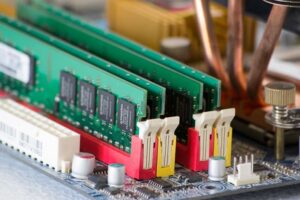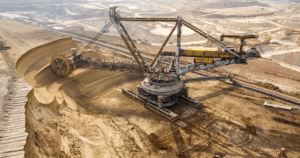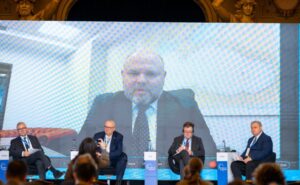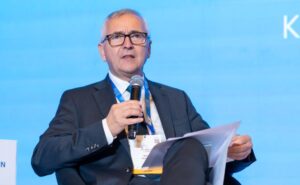
A sharp rise in global RAM (DRAM) prices and the possible end of Apple’s preferential contracts with key suppliers Samsung and SK Hynix in 2026 could lead to higher prices for iPhones, Macs, and other Apple devices. However, Apple itself has not yet announced any price increases, and expert estimates remain forecasts.
According to industry sources, Apple’s long-term DRAM supply agreements are nearing their end, and as early as January 2026, the company may be forced to pay Samsung and SK Hynix significantly higher prices for memory. This is reported, in particular, by Wccftech, noting that the bargaining position of memory manufacturers has strengthened amid a global shortage and a boom in demand from AI data centers.
The DRAM market is already experiencing a massive price rally. According to TrendForce, the cost of advanced memory for 2025 has increased by approximately 50%, and in the fourth quarter, additional growth of about 30% is expected, with a possible further increase of 20% in early 2026. Taken together, this could lead to a doubling of prices for high-performance memory in a relatively short period of time.
Separately, Reuters reported that Samsung raised its contract prices for 32GB DDR5 modules to $239 at the end of 2025, up from $149 in September — an increase of nearly 60% amid worsening shortages and a shift in supply toward the server and AI segments.
Analysts note that Apple is traditionally protected from short-term price spikes thanks to large long-term contracts and purchase volumes. According to Macworld, it is these agreements that have so far allowed the company to keep its internal memory costs under control, despite rising prices on the open market. However, as these contracts expire and suppliers move to shorter-term and more expensive deals, pressure on device costs will increase.
Against this backdrop, some research and industry resources predict that in 2026, smartphone and laptop manufacturers, including Apple, will be faced with a choice: either raise retail prices, reduce the amount of RAM in basic configurations, or accept lower margins. A number of analytical reviews are already warning of a possible increase in the cost of smartphones and PCs in 2026 due to a shortage of memory and an increase in its cost.
At the same time, there have been no official statements from Apple about a planned increase in product prices in connection with the situation on the DRAM market. The industry media experts surveyed emphasize that the final decision will depend on the company’s strategy: part of the cost increase may be offset by more expensive memory upgrades, part by a selective revision of prices for new models, and part by internal reserves and optimization.

In January-November of this year, Ukraine reduced exports of titanium-containing ores and concentrates in physical terms by 95.7% compared to the same period last year, to 277 tons.
According to statistics released by the State Customs Service (SCS) on Friday, in monetary terms, exports of titanium-containing ores and concentrates fell by 95.2% to $496,000. The main exports were to Uzbekistan (35.61% of shipments in monetary terms), Turkey (35.01%), and Egypt (29.38%).
In addition, Ukraine imported 78 tons of titanium-containing ore worth $117,000 from China (98.29%, deliveries took place in January) and Kazakhstan (1.71%, deliveries took place in May) in the first 11 months of 2025.
During this period, Ukraine exported 2,466 tons of niobium, tantalum, vanadium, and zirconium ores and concentrates worth $3.954 million to Spain (48.90%), Germany (24.53%), and Italy (17.19%). At the same time, the country imported 441 tons of such ores worth $1.125 million from Spain (72.98%), the Czech Republic (12.89%), and China (11.82%).
As reported, in 2024, Ukraine reduced its exports of titanium-containing ores in physical terms by 37.5% compared to the previous year, to 7,284 thousand tons. In monetary terms, exports of titanium-containing ores and concentrates decreased by 40% to $11.654 million. The main exports were to Turkey (62.82% of shipments in monetary terms), Egypt (7.38%), and Poland (6.93%).
Last year, Ukraine imported 314 tons of titanium-containing ore worth $492 thousand from China (87.78%), Vietnam (6.11%), and Senegal (also 6.11%).
At the same time, experts pointed out the inconsistency of statistics on exports of titanium-containing ores. However, in response to a request from Interfax-Ukraine, the State Customs Service (SFS) of Ukraine stated that complete data on the export of titanium raw materials is not provided due to restrictions on the volume of export and import operations with military and dual-use goods, which are reflected in aggregate form under “Other goods.” They explained that, in particular, deliveries of titanium-containing ores from companies differ from the SCS data.
“We would like to inform you that these deliveries are included in the statistical exports from Ukraine, but are not reflected in the foreign trade statistics published by the State Customs Service (…) under commodity item UKTZED 2614 ”Titanium ores and concentrates” in view of the following (…) In accordance with the regulations (…), when protecting data for confidentiality purposes, any information considered confidential is reported in full at the next, higher level of product data aggregation,” the State Customs Service explained in its response to the agency.
It was clarified that information on customs clearance and movement across the customs border of Ukraine of goods subject to export control is included in the list of information containing official information in the SSU, in accordance with the relevant order.
In Ukraine, titanium-containing ores are currently mined mainly by PJSC “United Mining and Chemical Company” (UMCC), which manages the Vilnohirsk Mining and Metallurgical Plant (VGMK, Dnipropetrovsk region) and the Irshansk Mining and Processing Plant (IGZK, Zhytomyr region), as well as LLC “Mezhirichensky GZK” and LLC “Valky-Ilmenite” (both LLCs are located in Irshansk, Zhytomyr region). In addition, the production and commercial firm Velta (Dnipro) built a mining and processing plant at the Birzulivskyi deposit with a capacity of 240,000 tons of ilmenite concentrate per year.

Participants in the panel discussion “Connecting Economies: Cross-border Infrastructure and the Power of Partnership” at the Ukraine Recovery Forum in Bucharest emphasized that the development of border infrastructure and joint projects is a key condition for unlocking the economic potential of Ukrainian-Romanian cooperation, especially in the border regions of Chernivtsi and Zakarpattia Oblasts.
The discussion was moderated by Bogdan Bernyage, senior associate expert at the New Strategy Center (Romania). The panel was attended by Gheorghe Șoldan, chairman of the Suceava County Council (Romania), Mykhailo Pavliuk, deputy chairman of the Chernivtsi Regional Council, and Andrii Sheketa, first deputy chairman of the Zakarpattia Regional Council.
According to the participants, the economic partnership between Chernivtsi region and Romania is of strategic importance: Romania accounts for over 20% of the region’s foreign trade turnover. There is significant potential for deepening cooperation in the woodworking industry, where Chernivtsi’s raw material base can be combined with the processing capacities of the Romanian side. Opportunities for the development of joint projects in the fields of IT, tourism, agriculture, and transport were also noted. “Our regions are already closely linked by trade, the next step is to move from simple exports of raw materials to joint production chains,” Pavliuk said.
With regard to Zakarpattia, the participants emphasized that the reconstruction of the region is closely linked to its long-term development and the deepening of ties with Romania. Despite the fact that the region has the longest section of the common border with this country, the border infrastructure remains underdeveloped, and a number of checkpoints operate below their potential capacity. According to Sheketa, targeted infrastructure investments—in roads, rail approaches, and the modernization of border crossing points—are a necessary condition for improving connections between Transcarpathia and Romania and for making fuller use of the opportunities for cross-border cooperation.
Following the discussion, the participants concluded that the development of joint projects and the modernization of border infrastructure could strengthen the economic integration of border regions and create additional opportunities for business and employment on both sides of the border.

Given the difficult situation in the energy sector, the state-owned enterprise Forests of Ukraine has decided to support Ukrainian households and keep the price of firewood for the population (within the social norm of 15 cubic meters) and the social sector unchanged until the end of the heating season, the state-owned enterprise’s press service reported on Telegram.
It is also noted that in the first ten days of December, the state-owned enterprise sold approximately 100,000 cubic meters of firewood, which corresponds to consumption in the first ten days of November, i.e., the demand for firewood is high but stable. At the same time, the company ships 12-15 thousand cubic meters of firewood to the population and social sector daily, which does not exceed the figures of previous years.
“Despite prolonged power outages, Ukrainians did not start buying more firewood. In September-November, we sometimes received calls from residents of large cities who were planning to move to villages. They asked about the terms of purchase and the possibility of remote payment. In the last month, there have been almost no such requests. City dwellers either go to relatives who have already stocked up on firewood or stay at home,” the state-owned enterprise said.
Firewood is available in almost every forestry of the State Enterprise “Forests of Ukraine.” Procurement is carried out at a high level, and the stock is constantly at least 150 thousand cubic meters. Deliveries to military units are also carried out on schedule and in full.
“Firewood, as before, will not be put up for auction—all supplies will be directed to the population,” assured “Forests of Ukraine.”

Participants in the panel discussion “The Strategic Role of the Danube in Logistics and Connectivity” at the international forum in Bucharest concluded that the Danube has become one of the key logistical and strategic corridors in the context of Russia’s war against Ukraine, the growth of hybrid threats, and the need to strengthen NATO and EU military mobility. In their opinion, improving the resilience and security of the Danube infrastructure should be considered a priority not only for coastal states but also for the entire Euro-Atlantic community.
The panel was moderated by Stefan Hofmann, head of the Konrad Adenauer Foundation’s offices in Romania. The discussion was joined by Andriy Kashuba, Deputy Minister of Community and Territorial Development of Ukraine (via videoconference), George Scutaru, Director General of the New Strategy Center, Wilfried Jilge, Associate Expert at the German Council on Foreign Relations, and Rear Admiral (ret.), Senior Associate Expert at the New Strategy Center, former commander of the Romanian Navy’s Maritime Component Liviu Coman.
The speakers emphasized that after the start of the war in 2022, traditional transport routes in the region became overloaded or vulnerable to military and hybrid attacks. This accelerated the development and more intensive use of the Danube infrastructure as an alternative corridor. Ukraine, they said, relies critically on Danube ports to maintain grain exports and support broader supply chains, while repeated Russian strikes on port infrastructure have exposed its vulnerability.
Participants emphasized that attacks on port facilities on the Danube have demonstrated the need for accelerated modernization of transport, transshipment, and surveillance systems, as well as enhanced protection of maritime and river infrastructure. This included expanding port capacity, upgrading the fleet, digitizing logistics processes, and improving coordination between military and civilian structures.
Following the discussion, the panel concluded that the Danube is a strategic hub for the entire Euro-Atlantic security architecture—a corridor for military mobility, a vector for economic integration, and a platform for regional cooperation. Participants emphasized the need for closer coordination between Romania, Ukraine, and the Republic of Moldova, including Ukraine’s full integration into European military mobility programs, strengthening port infrastructure, removing administrative barriers, and creating joint mechanisms to counter hybrid threats. According to experts, strengthening the stability and security of the Danube corridor is not just a regional task, but a strategic condition for the stability of Europe as a whole.

Turkish President Recep Tayyip Erdogan expressed optimism about the prospects for peace in Ukraine after talks with Vladimir Putin in Ashgabat, Turkmenistan, Turkey’s Anadolu news agency reported.
Erdogan told reporters on the side of the plane that Ankara also hoped to talk to U.S. President Donald Trump to assess a potential peace plan.
“After this meeting with Putin, we hope to be able to also discuss the peace plan with US President Trump. Peace is around the corner; we see it,” Erdogan said, referring to his bilateral meeting with Putin in Turkmenistan on Saturday.
Speaking about regional security, Erdogan warned against turning the Black Sea into a confrontation zone. “The Black Sea should not be seen as an arena of rivalry. It will not benefit Russia or Ukraine. Everyone needs freedom of navigation and security in the Black Sea,” he said.